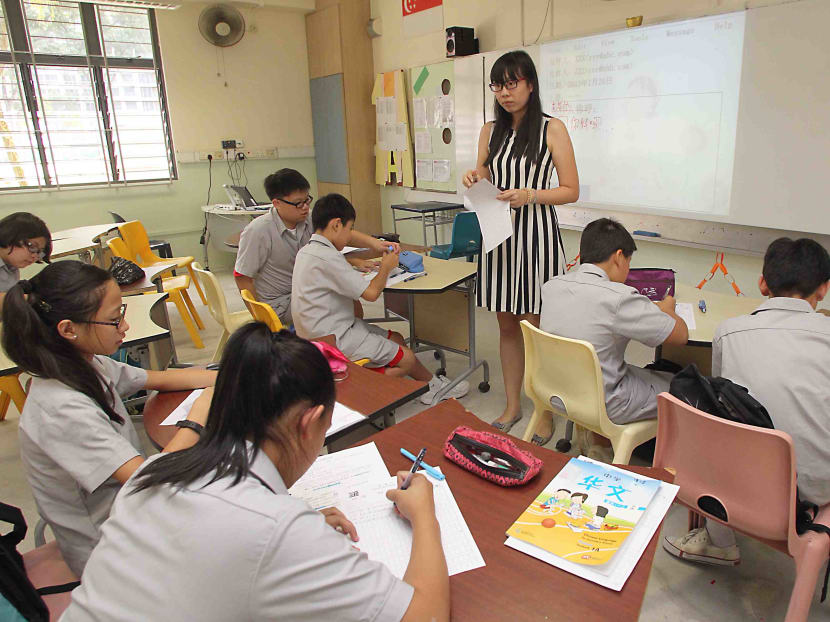Singapore students tops in problem solving skills
SINGAPORE — Singapore’s 15-year-olds came out tops in a global assessment of problem solving skills, as part of the Programme for International Student Assessment (PISA) test conducted in 2012.
SINGAPORE — Singapore’s 15-year-olds came out tops in a global assessment of problem solving skills, as part of the Programme for International Student Assessment (PISA) test conducted in 2012.
The Republic, which shared top spot with Korea in this particular assessment, had also done well in terms of the students’ mathematics, science and reading literacy skills which were evaluated under the same test — making it just a handful of territories and countries that excelled in all the various assessments.
The PISA test is conducted by the Organisation for Economic Cooperation and Development (OECD) once every three years. The results of the problem solving assessment were released today.
The performance of Singapore students debunked criticism of its education system – that it encouraged rote learning at the expense of developing creative skills, said Mr Andreas Schleicher, Special Advisor to the OECD Secretary-General on Education Policy and Deputy Director for Education and Skills.
Singapore clinched the highest score of 562 points on the PISA proficiency scale when it comes to solving problems that were not specific to any subjects. It also has the highest number of top-performing students in problem solving. For example, one question required students to use the menu system of a mp3 player displayed on the computer screen and set it to a particular setting with the least number of clicks as possible in order to test students’ planning and execution skills in problem solving.
In the mathematics, science and reading results released in December last year, Singapore students came in second in mathematics and third in both reading and science.
A total of 1,394 Singaporean students were randomly selected from 172 schools here to complete the computer-based assessment on problem solving, which was conducted across 44 participating countries and economies. Test questions were a mixture of multiple-choice questions and those where students had to construct their own responses.
Commenting on the results of the latest assessment at the Principals’ Forum held yesterday, Mr Schleicher said: “It shows that today’s 15-year-olds in Singapore are quick learners, highly inquisitive, able to solve unstructured problems in unfamiliar contexts, and highly skilled in generating new insights by observing, exploring and interacting with complex situations.”
He added that problem solving skills are particularly important in today’s context where there have been big losses in employment in tasks requiring routine cognitive skills. Instead, more are looking to employ people who can perform in tasks that require non-routine and analytical skills.
“A world economy no longer pays you for what you know — Google knows everything. The world economy pays you for what you can do with what you know. That makes a very big difference,” he said.
This story was filed on a Samsung tablet
http://www.samsung.com.sg







